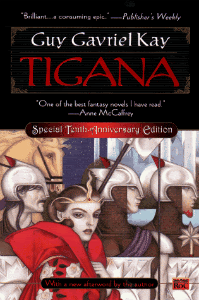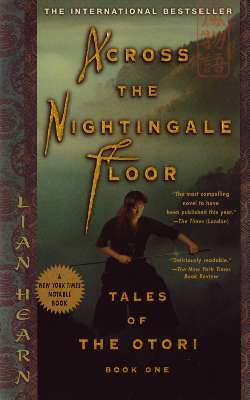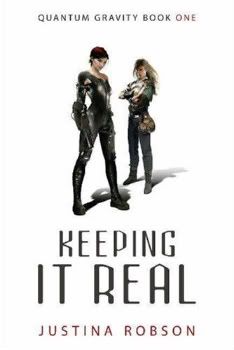
Empress (Godspeaker, Book One)
by Karen Miller
fantasy
717 pages
Have you ever read a book only to find that you don't like the majority of the characters, you find the writing to be mediocre at best, you think the world-building only succeeds some of the time and yet...you find yourself wanting to read the next page (and the next book in the series) because you really have to know what happens next? Or maybe it's just me?
Empress is the story of Hekat, a girl born into horrible, back-breaking poverty in a part of the world that sees women as useful only for bearing sons. At 12, as soon as she has her first period, her father sells her to slavers. One of the slavers thinks she's something special and treats her better than the rest of his stock and certainly better than she was treated at home.
She learns a great deal from the slavers as they traveling from The Savage North (no really, that's what it's called, right there on the map) to their home city of Et-Raklion, way down in the south. We learn along with her and here's where the shaky world-building comes in. We do learn that it's only in the north that women are totally disenfranchised and that, further south, they can serve as warriors and priests (godspeakers) of the nameless, monolithic God, and yet we see them still being treated poorly elsewhere. While yes, that happens even in our own society, the way it's handled here feels like Miller didn't really think everything through.
We also learn that this is an almost insanely religious society; the godspeakers are everywhere, sacrificing live animals at the drop of a hat, doing magic, enforcing curfews, advising the warlords who are the head of the secular side of the government and generally interfering with people's lives. Although the whole setting has Middle Eastern overtones, the one good thing I can say is that this doesn't really read like a fantasy version of Islam.
Once Hekat and the slavers reach Et-Raklion and she learns that, while she's "beautiful and precious" (a phrase she and other people use about her all the goddamn time), she's still a slave and not as important to the slavers as she thought. She runs away and that's essentially where her story really begins.
There's nothing really new about her journey (it's a pretty typical "rise to the top while not caring about who you step on to get there" trope) and the fact is, she's a rather unpleasant character--manipulative, lacking in any real empathy, and incredibly selfish. It makes sense given her background, but it also makes it kind of hard to care about what happens to her. The people around her, with the exception of Vortka, a young man taken from the same slave train as Hekat and made a godspeaker, are mostly annoying as well. The high godspeaker of Et-Raklion, Nagarak, is scheming and ambitions; the warlord, Raklion, is a good soldier, but easily manipulated, and so on.
On top of it all, if it weren't for the adult nature of the sex scenes and the sacrificial scenes (seriously, avoid this book like the plague if you hate animal death or ifscorpions freak you out), I'd think it was a YA novel. Miller's writing is incredibly simplistic and repetitive; off the top of my head, I could easily name twenty fan fiction writers in my current fandom who are much much better writers.
And yet, as I said up there at the beginning of the review, I blew through this book and will undoubtedly be grabbing the next one. I don't know what it is, but sometimes a story will manage to break through all of the obstacles the author throws in its way and demand that you finish it. So I ask again: that ever happen to any of you?
Or is it just me?








